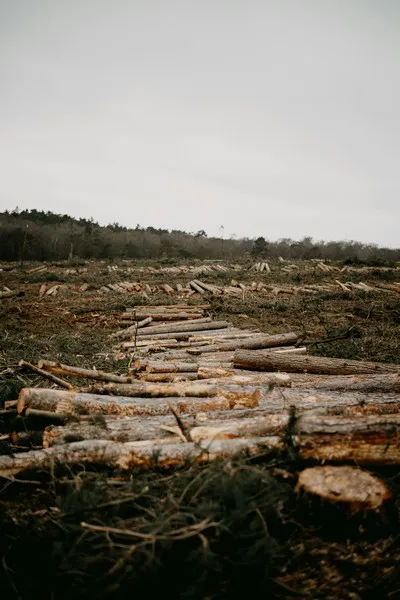Deforestation, the process of clearing or removing forests, has significant socioeconomic consequences that impact both local communities and the global population. This article will outline and explain the various socioeconomic implications of deforestation, highlighting its effects on the environment, economy, and society.
1. Environmental Consequences
Deforestation leads to the loss of valuable ecosystems and biodiversity. Forests are home to numerous plant and animal species, and their destruction disrupts delicate ecological balances. This loss of biodiversity can have long-term consequences, including the extinction of species and the disruption of natural processes such as pollination and nutrient cycling.
Furthermore, deforestation contributes to climate change. Trees absorb carbon dioxide, a greenhouse gas, and release oxygen, helping to regulate the Earth’s climate. When forests are cleared, this natural carbon sink is diminished, leading to increased levels of atmospheric carbon dioxide and the exacerbation of global warming.
2. Economic Consequences
The economic consequences of deforestation are multifaceted and can have wide-ranging impacts. One of the primary economic consequences is the loss of forest resources. Forests provide valuable timber, fuelwood, and non-timber forest products that support local economies and livelihoods. Deforestation disrupts these resource streams, leading to economic instability and the loss of income for communities that depend on forest-related activities.
Additionally, deforestation can negatively affect agriculture. Forests play a crucial role in maintaining soil fertility and regulating water cycles, which are essential for agricultural productivity. When forests are cleared, soil erosion increases, water sources dry up, and the overall fertility of the land diminishes. This can lead to reduced crop yields, food insecurity, and increased pressure on already limited arable land.
Furthermore, deforestation can impact tourism, another significant economic sector. Forests are often valued for their natural beauty and biodiversity, attracting tourists who contribute to local economies. When forests are destroyed, these tourism opportunities are lost, leading to decreased revenue and job opportunities in the tourism industry.
3. Societal Consequences
Deforestation has profound societal consequences, particularly for indigenous and local communities who rely on forests for their cultural and subsistence needs. Forests are often integral to the cultural identity and traditional practices of these communities. The loss of forests can lead to the erosion of cultural heritage and the disruption of traditional ways of life.
Moreover, deforestation can contribute to social conflicts and inequality. As forests are cleared for commercial purposes, land disputes arise, often leading to conflicts between local communities, corporations, and governments. These conflicts can result in the displacement of indigenous peoples, loss of livelihoods, and the violation of human rights.
Deforestation also has implications for public health. Forests provide essential ecosystem services, such as clean air and water, which are crucial for human well-being. When forests are destroyed, air and water pollution increase, leading to respiratory diseases, waterborne illnesses, and other health issues.
Conclusion
The socioeconomic consequences of deforestation are far-reaching and interconnected. The loss of forests not only impacts the environment but also has significant economic and societal implications. Recognizing and addressing these consequences is crucial for sustainable development and the well-being of both present and future generations.




